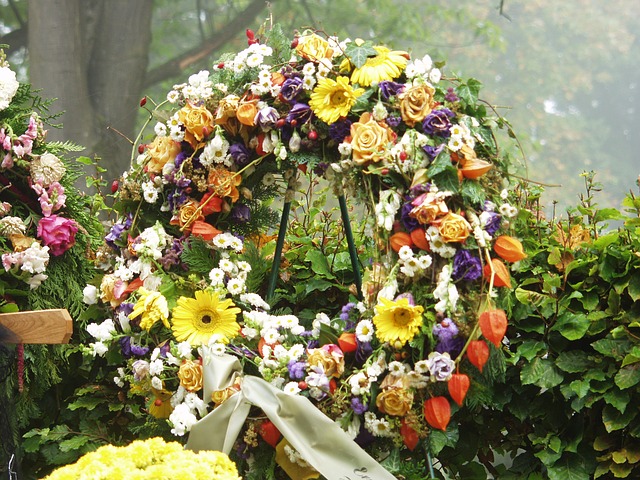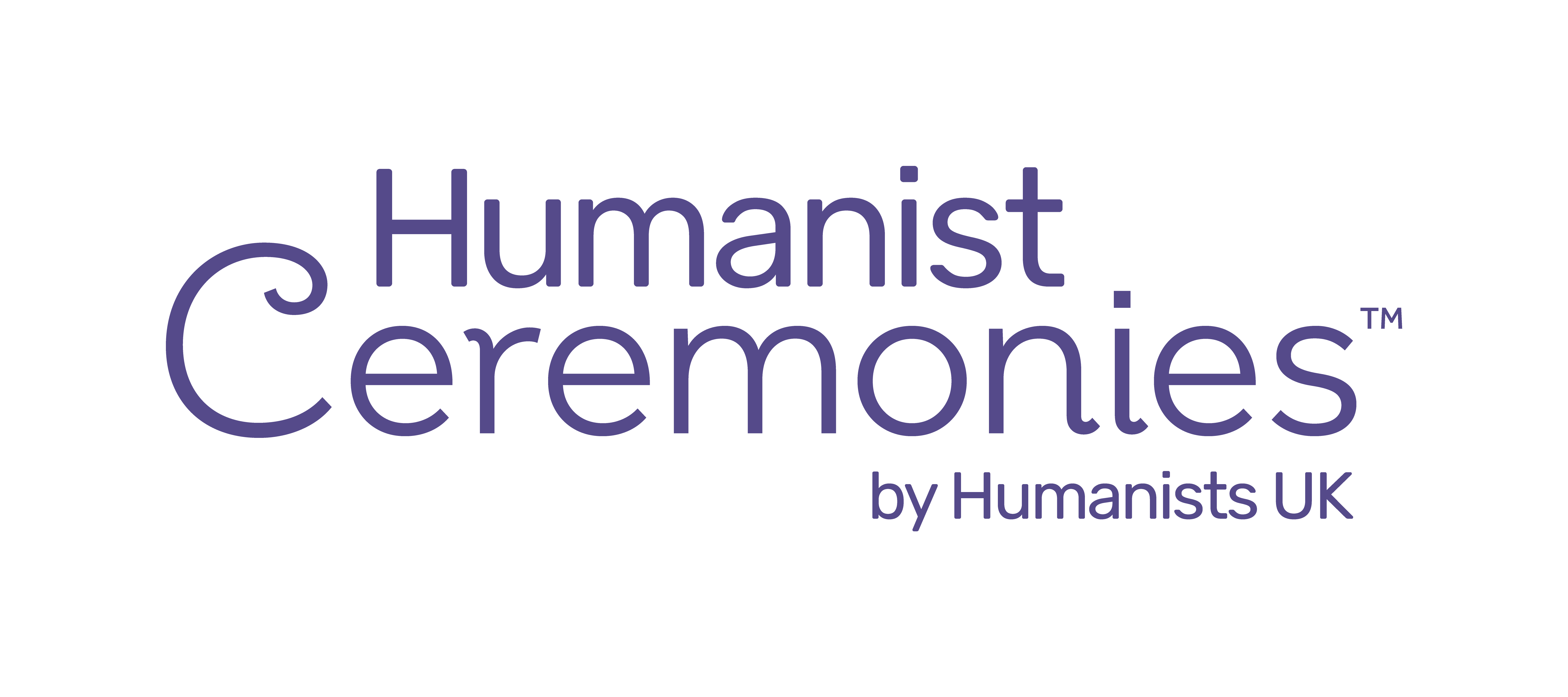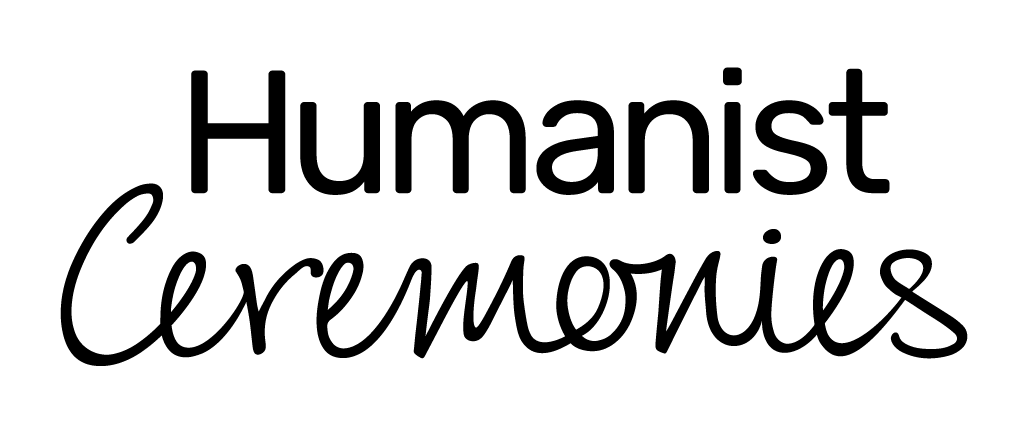Celebrating a Life
 I recognise that when a loved one dies it can be a terribly traumatic time so I will be mindful of this when assisting you to formulate the best possible ceremony.
I recognise that when a loved one dies it can be a terribly traumatic time so I will be mindful of this when assisting you to formulate the best possible ceremony.
Together, we will create a celebration of the life now gone while at the same time being respectful to the sense of loss felt by all.
The wonderful thing about Humanist ceremonies and celebrants is the flexibility they bring to a service. It is focused totally on the deceased, their family and friends. You get to decide how you want the service to go and you can have readings from favourite poems or prose, music that is meaningful to the deceased and a number of different speakers to recount stories which give testament to the character of the person who is, sadly, no longer with us.
You may be contemplating your own death and wish to work things out in advance but need help on how to go about this. Humanist celebrants are trained to assist with producing the ceremony script in advance or they can just talk everything through to make planning a little easier.
If you would like to discuss this I can help, or at least point you in the right direction. I can be contracted in advance to hold the actual ceremony. This often gives comfort to the person concerned as they can be reassured that I have spent time getting to know them and have a good idea about how they would like the ceremony to be conducted.
If, like me, you are one of the growing number of people who have bequeathed your body to medical science you may wish to consider a memorial service following your death as this may be more appropriate than a funeral.
Frequently Asked Questions
Is a humanist funeral right for us?
If the person who has died wasn’t religious, then a humanist funeral might be the right choice – one that will honour their beliefs and values.
Who leads a humanist funeral?
Me! That’s what a humanist celebrant does! We get called many things… ‘the minister’, the ‘non-religious vicar’ but a celebrant is just simply someone who writes and leads ceremonies.
What is a humanist funeral like?
Each humanist funeral is unique, as it doesn’t need to follow a set structure, but many services still choose to follow the format of traditional funerals. The order of service could be:
- Introductory music
- Words of welcome
- Thoughts on life and death from a non-religious perspective
- The tribute – an outline of the life and personality of the person who has died
- Readings of poetry and prose
- Reflection – a few moments for private thoughts about the person who has died, either in silence or accompanied by music (religious guests may take this opportunity for silent prayer here)
- The farewell – when the coffin is lowered
- Closing words – including thanks on your behalf
- Final music
The main part of a humanist funeral service is the tribute to the person who has died. This’ll be read out by the celebrant, and will include information and anecdotes from the close family and friends.
How long is a humanist funeral?
A humanist funeral service can be any length of time, but is normally between 20 minutes and an hour long depending on the number of readings and songs you’d like to include. (If the service is to be held at the crematorium, you’d need to let your Funeral Director know if you wanted to have a ceremony that is longer than half an hour – they can book a double slot for you, subject to availability.)
Where does a humanist funeral take place?
Humanist funerals can take place in a variety of locations. Typical places for a humanist funeral are crematoria and cemeteries. Other places could include hotels, community centres, gardens or any other place where people can gather and celebrate a person’s life.
What do people wear to a humanist funeral?
There are no set rules for what to wear at a humanist funeral: some prefer to keep it traditional; some families ask guests to dress in bright colours, to reflect the life and personality of the person who has died.
Can we have hymns at a humanist funeral?
It is unusual to have hymns at a humanist funeral, due to the non-religious nature of the service. However, if there is one that has great significance to you – part of your family history going way back, for example – then it would be appropriate to include it, as long as it’s introduced with its context and meaning to your family. Most people who choose a non-religious funeral want to include music that is personal to their loved one, whether that is a Metallica song, Kylie Minogue, Tom Jones or a piece performed live.
Can we have prayers at a humanist funeral?
Again, if a family have decided that a humanist funeral is right for their loved one, it would be unusual to include prayers due to the non-religious nature of the service. Humanist funerals are inclusive, however, and I will make sure to invite anyone with religious belief to say a silent prayer, if they wish, during the pause for reflection.
There are a large number of poignant, secular readings that can bring meaning to the ceremony – including ideas from The Funeral Guide, Dignity Funerals, examples from literature…or even a couple of geeky readings.
Can we include some creative ideas?
Of course! I’ll fully support you on including special touches to the ceremony, always mindful to keep to any time slot you have. You might want to have some live music or singing, ask family or friends to read poems, excerpts from a favourite book or song lyrics, show a video montage of your loved one, or collect donations for a favourite charity or cause.
What are your fees?
The cost of a humanist funeral ceremony is £200, which includes the following:
- An extensive family planning meeting where we can chat about your loved one, their life, their values, and what they have passed on to you.
- Sharing of secular readings and poems that you might consider to be read out during the ceremony.
- All my travel costs.
- A completely personal ceremony warmly-delivered on the day and then a short committal ceremony by the graveside or crematorium.
- A pdf version of the ceremony script as a keepsake for you to print or share.


